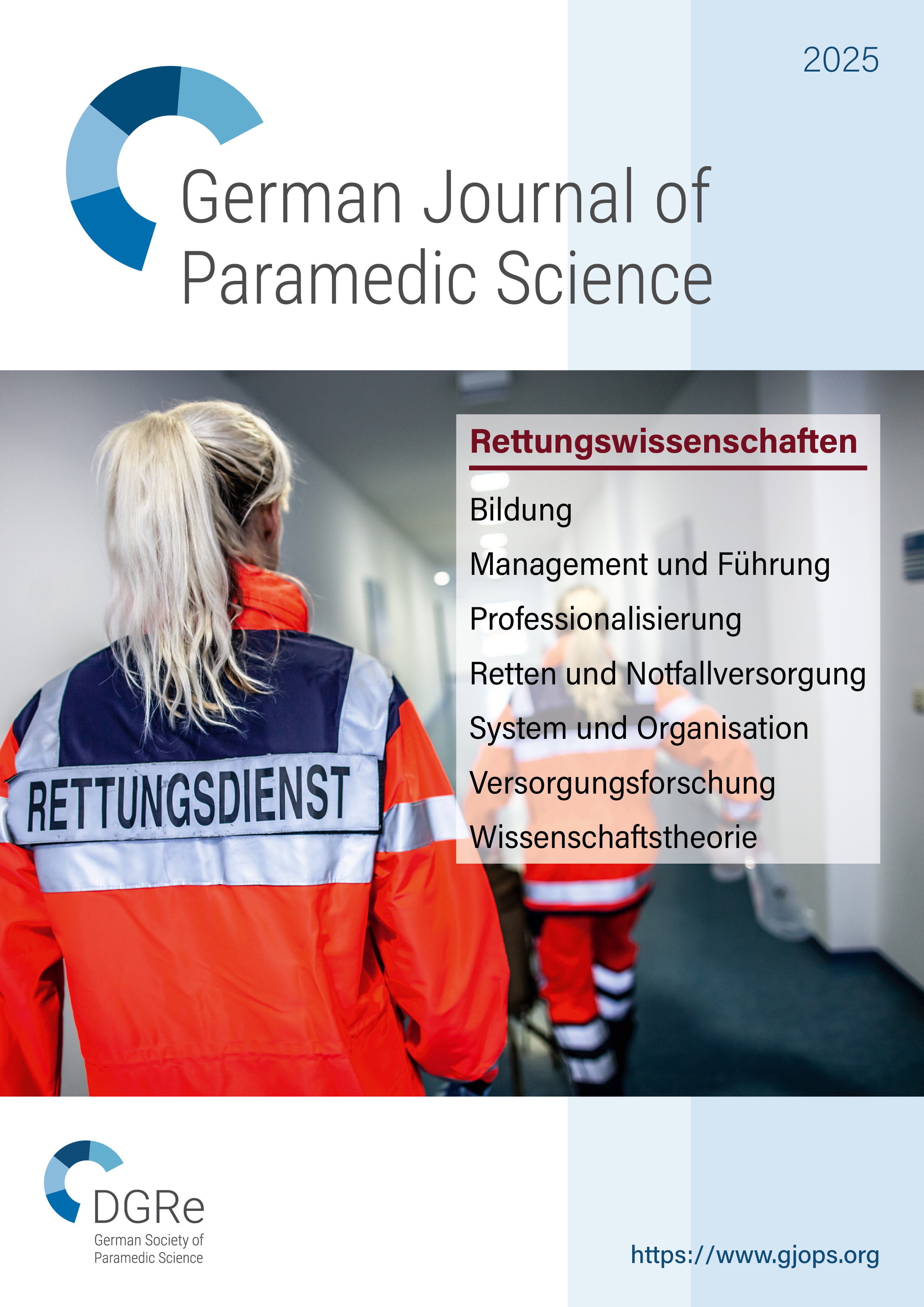Evidence in Emergency Care:
A Set-Theoretical Analysis of Emerging Paradoxes in the Context of § 2a NotSanG
DOI:
https://doi.org/10.25974/gjops.v2i1.54Keywords:
Evidence in Emergency Care, Set Theory, Paradoxes in Emergency Medical Services, German Paramedic Authorization to perform Medical PreoducesAbstract
Background
Evidence-based medicine is regarded as a central guiding principle in the healthcare system, increasingly also in the emergency medical services. However, the practical implementation of this claim in the dynamic and federally characterized system of emergency care raises structural, methodological and ethical questions. Section 2a NotSanG in particular leads to tensions between evidence-based guidelines and the decentralized interpretation by medical directors.
Research question
How can the implementation of evidence-based practice in the emergency medical services be analyzed using set-theoretical models, and what paradoxes arise in the context of §2a NotSanG?
Methodology
The article uses a qualitative analysis with logical and set-theoretical modeling. The analysis focuses on modal-logical structures of legal formulations and their practical interpretation by medical management. Paradoxes are formalized via set relations (must/may/can). Case studies, in particular on the administration of catecholamines, illustrate the practical relevance.
Results
Four central paradoxes can be identified: (1) necessary but unauthorized actions, (2) learned helplessness due to external control, (3) loss of competence due to non-application and (4) legal responsibility despite uncertainty. These paradoxes arise from discrepancies between legal requirements, subjective assessment and federal regulations. Evidence is sometimes used rhetorically and is subject to locally variable interpretation.
Discussion
The results show that the claim of evidence-based action in the emergency medical services is hampered by structural hurdles and normative-ontological contradictions. Evidence is not visible as a stable body of knowledge, but as a relational negotiation process. The legally defined scope for action in §2a NotSanG collides with uncertainties in practical implementation.
Conclusion
Evidence in the emergency medical services is not an objective standard, but often an expression of federal arbitrariness and individual interpretations. In order to enable fairer and quality-assured care, structural reforms, clear delegation guidelines and a critically-reflected embedding of evidence-based principles in the everyday life of the emergency medical services are required.
Downloads
Published
Issue
Section
Categories
License
Copyright (c) 2025 Fabian Steffens, Malte Große Ahlert, Thomas Prescher

This work is licensed under a Creative Commons Attribution-ShareAlike 4.0 International License.
We publish open access under the Creative Commons BY-SA 4.0 licence (https://creativecommons.org/licenses/by-sa/4.0/?ref=chooser-v1).
Content may be redistributed and reprocessed (including for commercial purposes), provided that the original source is cited and the same licence conditions apply.






